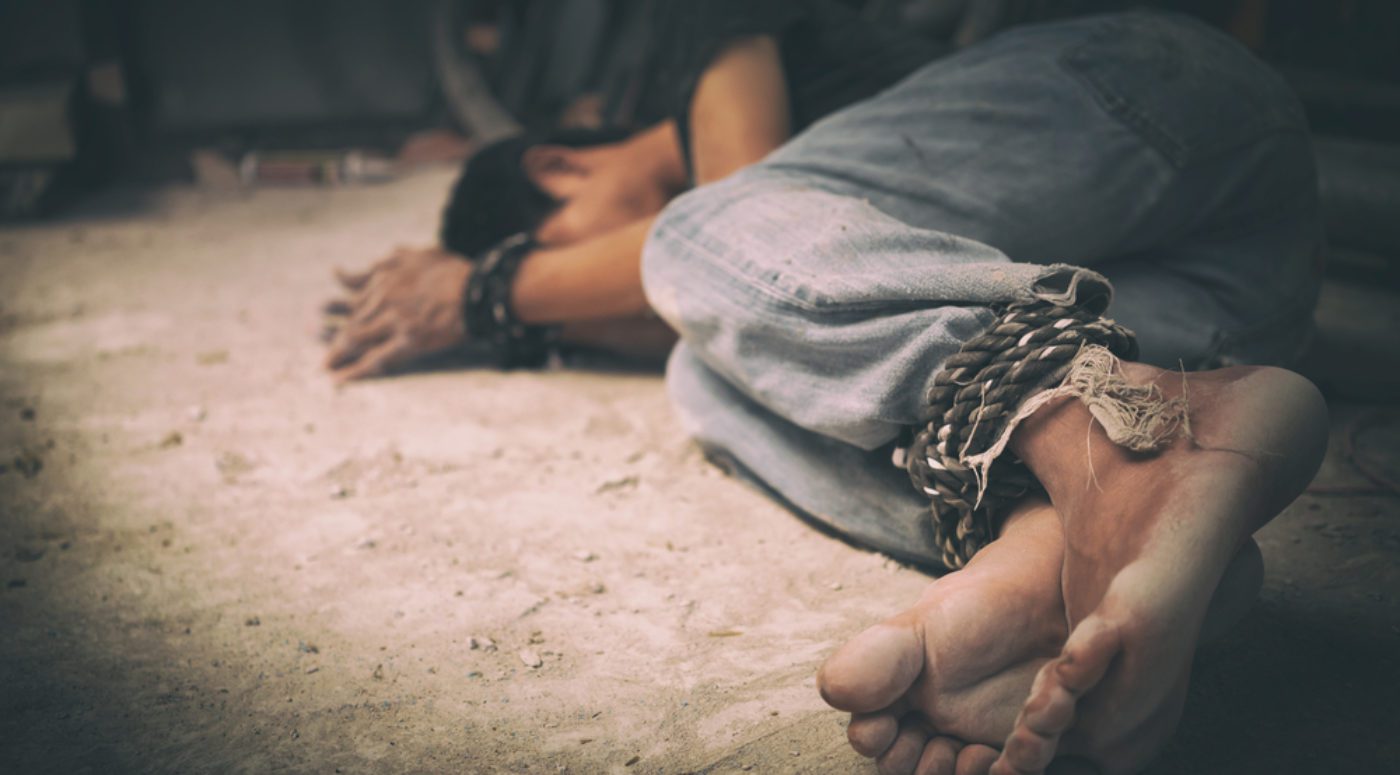

Human trafficking is a grave crime in the UK, involving the illegal movement of people for the purpose of exploitation. It is a complex offence, encompassing a range of abusive activities, and is considered one of the most heinous crimes. If you or someone you care about is facing charges related to human trafficking, it’s crucial to seek legal advice immediately. This article provides an overview of the offence, details sentencing guidelines, and discusses the likelihood of custodial sentences for first-time offenders. Information on where to get more help is also included.
What is the offence of human trafficking in the UK?
The offence of human trafficking in the UK is a serious crime, primarily governed by the Modern Slavery Act 2015. This comprehensive legislation consolidates and simplifies previous laws relating to trafficking and slavery, aiming to provide stronger protection for victims and more effective prosecution of perpetrators.
Under the Modern Slavery Act 2015, human trafficking involves the arrangement or facilitation of the travel of another person with a view to exploiting them. The Act defines exploitation broadly to include:
- Sexual exploitation
- Forced labour
- Slavery or servitude
- The removal of organs
The law applies to trafficking both into and within the UK. This means that it covers a wide range of activities, from international trafficking networks bringing people into the UK for exploitation to the movement of individuals within the country for similar abusive purposes.
For the prosecution to secure a conviction for human trafficking, they must prove several key elements beyond reasonable doubt:
- Act: There must be an act of arranging or facilitating the travel of another person. This includes recruiting, transporting, transferring, harbouring, or receiving that person.
- Means: The prosecution must demonstrate that the accused used force, threats, deception, coercion, abuse of power, or other means to control or influence the victim. For children (persons under 18), proving the use of such means is not necessary – the mere act of arranging or facilitating their travel for exploitation constitutes trafficking.
- Purpose of exploitation: It must be established that the purpose of the trafficking was to exploit the victim. Exploitation can take various forms, as mentioned above. Significantly, there is no need for the exploitation to have actually taken place – the intention or plan to exploit is sufficient for the offence.
- Knowledge or recklessness: The accused must have either known or been reckless as to the likelihood that the arrangement or facilitation of travel would result in exploitation.
The burden of proof lies with the prosecution. In addition to proving the above elements, they must also disprove any defences raised by the defendant. Notably, the Modern Slavery Act provides a statutory defence for victims of slavery or trafficking who have been compelled to commit criminal acts as a direct consequence of their situation. This defence acknowledges the complex nature of exploitation and seeks to protect victims from unjust prosecution.
What are some examples of human trafficking offences in the UK?
- Recruiting someone and forcing them into prostitution
- Transporting a person into the UK for forced labour
- Harbouring a child and subjecting them to domestic servitude
- Deceiving someone into coming to the UK for organ removal
- Luring individuals with false job offers
- Forcing individuals into criminal activities
- Exploiting individuals in the agricultural sector
- Trafficking for the purpose of marriage
- Child soldiers
- Exploiting individuals in the hospitality sector
- Trafficking for the purpose of benefit fraud
What happens if you are suspected of committing human trafficking in the UK?
Being suspected of human trafficking in the UK triggers a comprehensive legal process. Initially, law enforcement agencies, such as the police or the National Crime Agency (NCA), will conduct an investigation. This can involve gathering evidence, interviewing witnesses, and potentially arresting suspects. If there is sufficient evidence, the Crown Prosecution Service (CPS) will decide whether to charge the individual with human trafficking. Upon being charged, the suspect will face a court trial where evidence will be presented by both the prosecution and defence.
The legal process is intricate and can be prolonged, involving multiple hearings and possibly bail applications. The defence might challenge the evidence, argue about the credibility of witnesses, or question the legality of the investigation methods. Throughout this process, the rights of the suspect are protected under UK law, including the right to a fair trial and legal representation.
For victims, the UK offers several protective measures. These include the National Referral Mechanism (NRM), which helps identify and support victims of human trafficking. Victims are provided with legal and psychological assistance, and their safety and well-being are prioritised.
This process underscores the complexity of human trafficking cases. They often involve cross-border investigations and require a nuanced understanding of international law, human rights, and victim support.
What is the sentence for human trafficking?
Sentencing for human trafficking in the UK is determined by the severity and specifics of the crime. Under the Modern Slavery Act 2015, individuals found guilty of human trafficking can face life imprisonment, reflecting the seriousness of the offence. The court considers various factors when deciding on a sentence.
Aggravating factors play a crucial role in increasing the severity of a sentence for human trafficking. These factors indicate a higher degree of culpability or a greater impact on the victim, which the court takes seriously:
- Vulnerability of the victim: Special consideration is given if the victims are particularly vulnerable due to age, disability, or their immigration status.
- Physical or psychological harm: If the trafficking leads to substantial physical injury or long-term psychological damage to the victim, this significantly aggravates the offence.
- Use of threats or coercion: Employing intimidation, violence, or psychological manipulation to control victims is seen as especially heinous.
- Involvement of minors: Trafficking involving children or minors automatically heightens the severity, given the increased vulnerability and potential for long-term harm.
- Scale of operation: Large-scale trafficking operations, involving a significant number of victims, are treated more severely.
- Organised criminal activity: Involvement in or connection to organized crime groups, especially if the trafficking is part of a broader criminal enterprise, is a major aggravating factor.
- Financial gain: Significant economic benefit gained from the trafficking activities indicates a higher degree of exploitation and greed, worsening the offence.
- Repeat offending: A history of similar offences or continued trafficking activities even after initial detection can lead to harsher sentences.
Mitigating factors, on the other hand, may lead to a reduced sentence. They suggest a lower level of culpability or demonstrate the defendant’s willingness to redress their actions:
- Evidence of remorse: Genuine remorse and acknowledgement of the harm caused can be a mitigating factor.
- Cooperation with law enforcement: Actively assisting in the investigation or helping to dismantle trafficking networks can count in the defendant’s favour.
- Absence of previous criminal convictions: First-time offenders may receive a more lenient sentence than repeat offenders.
- Personal circumstances: Factors such as age, mental health, or background (for instance, if the defendant was previously a victim of trafficking themselves) may be considered.
- Efforts to compensate victims: Taking steps to provide restitution or compensation to victims can be a sign of taking responsibility.
- Lesser role in the offence: If the defendant played a minor or coerced role in the trafficking operation, this could lead to a reduced sentence.
- Duration of involvement: A shorter duration of involvement in trafficking activities might be considered a mitigating circumstance.
- Good character and community ties: Evidence of good character, such as community involvement or a stable family life, may be factored into sentencing decisions.
The sentencing process is complex and depends on the individual circumstances of each case. Legal representation is crucial in ensuring that all relevant factors are considered.
Will I go to prison if it is my first time committing human trafficking?
For first-time offenders of human trafficking, the likelihood of a custodial sentence is high, given the gravity of the offence. Even in the absence of prior convictions, the seriousness of human trafficking often necessitates a strong penal response. The court’s primary considerations include the nature of the crime, the harm caused to the victims, and the need to deter others from committing similar offences.
That said, every case is unique, and courts consider various factors before passing a sentence. In certain circumstances, where there are significant mitigating factors and the level of involvement in the trafficking is minimal, alternatives to imprisonment may be considered. These can include community service, probation, or suspended sentences.
Legal representation is critical for individuals facing such charges, as a skilled lawyer can effectively present mitigating factors and argue for a more lenient sentence where appropriate.
Where to get further help
If you or someone you care about is facing the very serious charge of human trafficking for the first time, it is essential that you get reliable and reputable legal representation as soon as possible. This article has outlined the definition of the offence, given examples, revealed how sentencing is decided, and discussed whether first-time offenders are likely to go to prison, but sometimes in person advice on your exact case is required. Get in touch with the team at Stuart Miller Solicitors today for a free consultation.
OUR COMMITMENTS TO YOU:
-
Responsive
A legal expert will consult you within 24 hours of making an enquiry.
-
Empathetic
We will always treat you with trust, understanding and respect.
-
Specialised
Your case will be handled by an expert who specialises in your type of offence.
-
Proactive
We will take early action to end proceedings as soon as it is practically and legally possible to do so.
-
Engaged
You will be kept updated on your case at all times. We will provide a named contact available to answer your questions.
-
Caring
We understand this is a difficult and stressful time for you and your family. Our team will support you every step of the way.
-
Tenacious
We will never give up on your case. We fight tirelessly to get you the best possible outcome.

